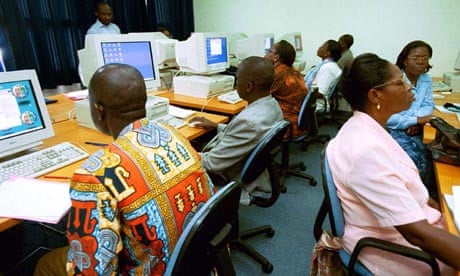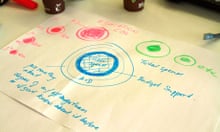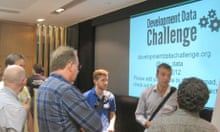These are heady days for supporters of open access (OA), who argue that the results of publicly-funded research should be made freely available to all, not just those who can afford subscriptions to the scientific journals in which they are published.
Earlier this year, the World Bank announced that it would adopt an open access policy for all its research outputs and "knowledge products", which will be entered into a central repository to be made freely accessible on the internet.
Last month, the British government said that, in future, it will require all the research it funds in British universities to be made openly accessible, with authors paying publishers a fee (funded out of research grants) to make this possible – a position already adopted by the influential Wellcome Trust. The move was rapidly followed by an announcement from the European commission that the same rule will apply to all commission-funded research.
The UK's Department of International Development recently announced all its research will be made freely available. And publishers such as BioMed Central are pioneering open access journals in developing regions such as Africa.
Tempering the pace of change
The momentum is unstoppable. And, at least as readers, scientists in developing countries, where journal subscriptions are often unaffordable, are some of the biggest beneficiaries. Free access to the latest research results from across the world is helping them become more effective members of the global research community – and helping global research find local applications.
But however attractive the concept of open access, we should be careful about expecting too much, too soon in terms of outcome and impact. Enthusiasm must be tempered by an awareness of what can realistically be achieved, and of the pace of change required to ensure a rush to open access does not have unwanted side-effects. It is important, for example, that a single-minded focus on securing commitment to the "author pays" model of open access – often referred to as "gold OA" – should not undermine efforts to create what many in the open access community consider an essential intermediary step, namely the setting up of open repositories (the "green OA" route). These are freely accessible collections of research articles set up to house all publications from researchers in a particular institution (including final versions of manuscripts subsequently published in paid-for scientific journals).
Almost 1,000 thriving open repositories have been set up across the developing world (for details, see Registry of Open Access Repositories e-prints). Many provide an important link between research being carried out within an institution and local communities, which may be able to use this research for practical purposes.
Safeguarding local needs
For scientists in developing countries to benefit, it is also important to ensure the author fees required by open access journals do not become an impediment. Finding an additional £1,500 ($2,373) on top of a research grant – the figure widely quoted as the standard author fee – may not be much for a well-funded researcher in the developed world. But it is significant in developing countries, where research funding is already scarce. Short-term steps, such as publishers waiving this fee, can mitigate the difference. In the long run, the solution must lie in making the costs of publication an essential component of any research grant (comparable to buying supplies and scientific equipment). But we are still a long way from that.
Furthermore, while richer journals may be in a position to waive such fees, this may not be possible for research journals in the developing world that often lead a hand-to-mouth existence, relying on subscriptions (and thus restricted access) to cover basic editorial and production costs.
In such situations, as Susan Murray from African Journals Online told a meeting held in June by the International Network for the Availability of Scientific Publications, there is a danger that developing country researchers might desert local journals unable to afford to go open access while waiving author fees.
This, Murray argued, would undermine the key role that such journals can play in promoting locally-funded research based around needs and priorities determined in developing countries, rather than by the scientific community in the developed world.
Challenges ahead
Helping to reinforce local research capacity has been a priority of SciDev.Net ever since we set up in 2001, when we made a commitment that all the material on our website would be freely accessible. This inevitably created problems in devising a long-term business plan. Where, our critics asked, would a sustainable income come from to cover the significant costs of running the organisation?
We have been fortunate to have sponsors, particularly aid agencies, with the foresight to realise that in the developing world, not only scientific research but also access to that research can only be sustained through public subsidy, at least for now. Even Nature and Science, both paid-for journals, agreed to make research papers relevant to the developing world freely available to SciDev.Net readers.
For us, the type of free access to scientific information represented by the open access movement is a key component of building development from the bottom up (an approach recently characterised by Rajiv Shah, administrator of the US Agency for International Development, as "open source development").
As I prepare to vacate the editor's chair after 11 years, it is a pleasure to see our work has been part of a movement in the right direction. The tide has turned, with the need for open access to science increasingly accepted by research institutions and their funding agencies.
Yet there are still too many obstacles to the free flow of scientific information, from rapacious publishers to restrictive intellectual property laws and unsympathetic research institutions. These restrictions affect not only scientists but also science journalists. For journalists, open access to science needs to be complemented by open access to scientists. The battle for the acceptance of science journalists and communicators as key players in the development field, and for free access to scientific information, is far from over.









